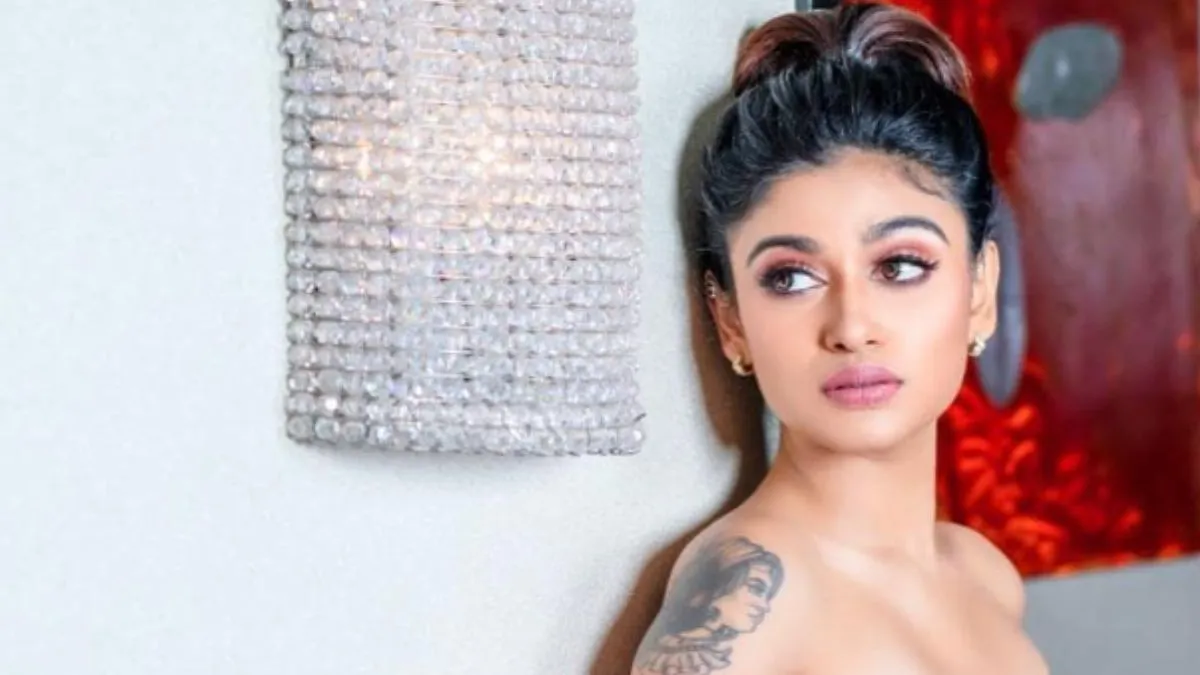In a world increasingly dominated by digital footprints, how safe is our privacy? The alarming frequency of leaked private videos, from intimate moments to surreptitiously recorded footage, raises critical questions about consent, security, and the pervasive nature of online surveillance. The recent surge in such incidents, impacting both public figures and ordinary individuals, underscores the urgent need for a deeper understanding of the issues at hand.
The digital age has blurred the lines between public and private life, leaving individuals vulnerable to exposure and exploitation. The constant threat of private moments becoming public knowledge has become a stark reality, as evidenced by a string of recent cases that have sparked public outrage and debate. From the high-profile controversies surrounding celebrities to the more insidious cases of hidden cameras in universities, the scope of the problem is vast and multifaceted.
| Subject | Details | Reference |
|---|---|---|
| Seema Haider | A Pakistani woman who entered India from Nepal with her four children, has recently found herself embroiled in controversy. An alleged MMS video involving her and her husband, Sachin, has surfaced, making headlines and fueling public discussion. | Information is readily available through news sources and public records. |
| Minahil Malik | A TikTok star whose private MMS video was leaked online. This case exemplifies the vulnerability of social media personalities to privacy breaches. | Information is readily available through news sources and public records. |
| Mona Singh | An actress who gained recognition on the small screen, was shocked to see her alleged MMS video leaked online. The incident has led to significant distress and public attention. | Wikipedia |
| Trisha Kar Madhu | A Bhojpuri actress whose private MMS video was leaked online, resulting in significant public uproar. | Information is readily available through news sources and public records. |
| Deekila Sherpa & Aniket Lama | A recently leaked viral video featuring these individuals has ignited widespread debate over issues related to privacy, relationships, and the ethical implications of reality television. | Information is readily available through news sources and public records. |
The incidents are not isolated events; they represent a disturbing trend that reflects the inherent vulnerabilities of digital platforms and the challenges of safeguarding personal privacy in an interconnected world. The impact extends beyond the individuals directly involved, raising broader questions about the ethics of sharing private content, the role of social media, and the legal and social repercussions of such leaks. The stories serve as a potent reminder of the responsibility that individuals, platforms, and society as a whole have to protect privacy and prevent the misuse of personal information.
One of the most recent examples of the growing problem involves a series of events that unfolded at an Indian university. Massive protests erupted on the campus in Mohali, Punjab, following allegations that a female student had leaked objectionable videos of other female students. The outrage was palpable, with students and the public expressing concerns about the privacy and safety of young women on campus. Similar concerns about safety and privacy have also been raised at universities in other regions.
The incident at the university in Mohali led to the arrest of a student, underscoring the gravity of the situation and the legal consequences of such actions. The university authorities, however, have disputed some of the allegations, attempting to downplay the severity of the leaks. These differing accounts highlight the challenges of establishing the truth and the complexities of navigating the legal and social implications of such incidents.
Beyond the Indian university campuses, the issue is not confined to one geographical location. A hidden camera was discovered in a hostel toilet at Gudlavalleru Engineering College in Andhra Pradesh, highlighting the pervasive nature of these privacy violations. The camera had allegedly been secretly recording women, with the recordings being sold to some students. This alarming case prompted an inquiry by the state government, underscoring the need for proactive measures to prevent such incidents and to ensure the safety of students.
The case of Bhojpuri actress Trisha Kar Madhu serves as a sobering reminder of the impact of such leaks on public figures. Her private MMS video was leaked online, causing a significant uproar. The incident brought her career and personal life into the public eye, and triggered a wave of harsh reactions from the online community. In response to the scandal, Madhu urged the public not to watch or share the video, recognizing the damage it was inflicting. This case highlights the intense scrutiny and backlash that those involved often face, and underscores the importance of empathy and understanding in the face of such incidents.
These cases have spurred an examination of the legal and social dimensions of the problem. The spread of leaked content online can lead to legal ramifications, including charges of voyeurism, harassment, and the violation of privacy laws. Moreover, victims of such leaks face a torrent of social media attention, often characterized by shaming, cyberbullying, and unwanted public commentary. The psychological impact of such exposure can be devastating, leading to stress, anxiety, and even suicidal thoughts.
The challenges faced by actresses and celebrities in India when their private moments are leaked online deserve special mention. From Katrina Kaif to Soha Ali Khan, Kareena Kapoor Khan, Oviya, and Riya Sen, numerous Bollywood actresses have been affected by MMS scandals. The impact on their careers and personal lives can be immense, as they grapple with the scrutiny of the media, public judgment, and the potential damage to their professional reputations. Despite the media frenzy, many actresses have exhibited strength and resilience, focusing on their careers and seeking ways to overcome the controversy.
The response to these incidents reveals complex societal attitudes regarding privacy, consent, and the exploitation of private information. The tendency to blame the victim, as seen in the case of Trisha Kar Madhu, is a disturbing reflection of these attitudes. This response highlights the need for a cultural shift, one that emphasizes respect for privacy, promotes digital literacy, and fosters a more supportive environment for victims of privacy violations.
The rise of social media and the ubiquity of smartphones have amplified the risks of privacy breaches. The ease with which content can be recorded, shared, and disseminated online has created a breeding ground for privacy violations. The anonymity provided by the internet makes it easier for individuals to engage in malicious behavior, such as the unauthorized distribution of intimate content or the creation of fake profiles.
The implications of these incidents go beyond the immediate individuals involved. They call attention to the lack of digital security and the vulnerability of online platforms. A recent incident in Chandigarh, India, where videos of nearly 60 girls were allegedly leaked from a hostel, demonstrates the importance of rigorous security protocols and the need for vigilance from educational institutions. The subsequent arrest of the student and the sacking of wardens highlight the need for legal and institutional accountability.
The consequences of such leaks extend to the broader social fabric. When private moments become public knowledge, it can erode trust, fuel voyeurism, and contribute to a culture of online harassment. It can also damage personal relationships and professional opportunities. The impact is not confined to any one group; people of all backgrounds and ages are affected by this problem.
As these cases demonstrate, the need for a multi-faceted approach to address the problem is clear. This must include promoting digital literacy to educate individuals about online safety and privacy, advocating for stronger privacy laws, enhancing security measures on online platforms, and fostering a culture of empathy and respect for others. Educational institutions have a critical role to play in this, creating a safe environment and providing support to those who have been affected by privacy violations.
It is imperative that we, as a society, address these issues with urgency and determination. We must create a world where privacy is valued, where online platforms are safe, and where victims of privacy violations receive support and justice. This requires the collaboration of individuals, technology companies, government agencies, and educational institutions. We must recognize the critical importance of safeguarding personal privacy in the digital age and take decisive steps to protect it.
As the frequency of these privacy breaches continues to rise, the question is not if they will continue to occur but when and who the next victims will be. The solutions may not be simple or easy to achieve, but they are critical for the future. There is an immediate need to bring awareness and promote the need to enhance the laws and implement stricter guidelines so as to prevent these incidents from reoccurring.


